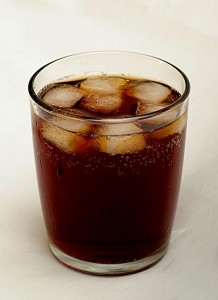The safety debate over food colouring is nothing new. Most of us recall the recent Kraft dinner debacle that resulted in a widespread crusade against the retailer’s use of yellow dye #5 – the chemical that puts the neon in the noodles. Clinical research has linked the dye, otherwise known as tartrazine to numerous health problems, including migraines, anxiety, blurred vision, and hyperactivity in children. Tartrazine is considered to be the most allergenic of the dyes – and consumers have learned to avoid its telltale yellow glow. But now, recent tests have focused scrutiny on a new potentially dangerous colourant. It’s called 4-Mel, the caramel colouring turned potential carcinogen found in most of our favourite soft drinks.
The truth about cola
We all know that cola is bad for our health. It’s high in sugar and dismally lacking in any recognizable health benefits. But a new study published by Consumer Reports shows that brown soda could be far more dangerous than previously understood. 4-Mel, the chemical colourant that gives colas their brown tint has been recognized as a possible human carcinogen by the International Agency for Research on Cancer. Consumers don’t need a food safety course to understand that this is bad news for the millions of Canadians who count on a daily dose of the caramel-coloured bubbly. So long as 4-Mel is on the ingredients list, it may simply not be worth the risk.
Pepsi, Coke, and so-called natural sodas
The Consumer Reports study focused in cola consumption in California, where there is legislation limiting how much 4-Mel products can contain without providing a warning label – 29 micrograms. The eight-month investigation found that Pepsi One and Malta Goya exceeded those levels, and yet had no warning on their packaging. Although the researchers are reluctant to promote one brand over another, the results show that Coke products with caramel colour tested the lowest for 4 Mel. Proving once again that consumers must beware of misleading labels, Whole Foods’ Dr. Snap was scandalously exposed as containing 4-Mel even though its package promised all-natural ingredients.
What consumers should know
4-Mel is present in any food or beverage that is artificially coloured brown. In fact, it’s ubiquitous across our food supply. Root beer, iced tea, synthetic pancake syrup, barbecue sauce, soups, gravy – they all contain caramel colouring. When it comes to food safety training for the average shopper, Consumer Reports suggests reading labels more closely, and favouring products that don’t include 4-Mel. Toxicologist, Dr. Urvashi Rangan who worked on the study says there is no reason to expose consumers to an unnecessary health risk – he sums it up nicely when he comments, “we just don’t think colouring your food brown should give you cancer.”
Do you think Health Canada should enforce warning labels for products that contain 4-Mel?




